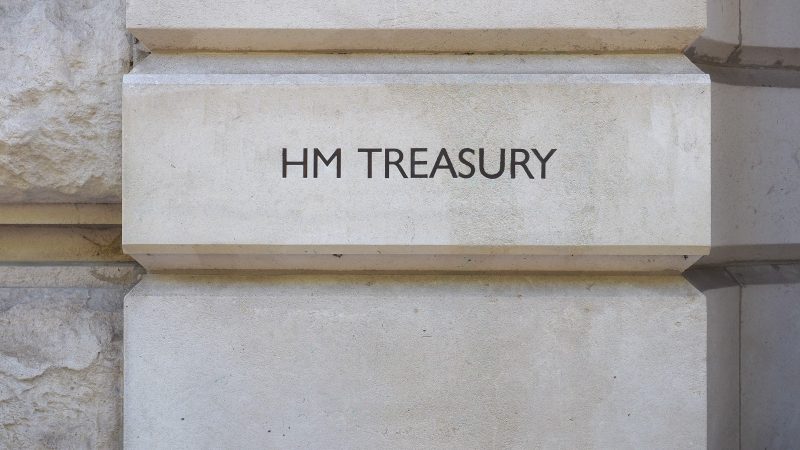
The Tory government is currently pitch rolling for another round of austerity. This is being greeted with understandable dread after 12 years in which we’ve had significant cuts in council budgets, the social security system and almost all public services are overstretched: whether we look at the 130,000 vacancies in the NHS; the courts backlog or the fall in the real pay of public sector workers. It’s hard to imagine more cuts, let alone while respecting promises made to voters.
And yet Labour cannot be the mirror image of the Liz Truss/Kwasi Kwarteng irresponsibility; if we were to propose unfunded spending at the same level as their unfunded tax cuts we’d get the same catastrophic market reaction. At the same time, we want to offer a different future – an inclusive society investing in young people, hitting net zero and spreading economic growth across the country. When we say this we are challenged by TV interviewers – and voters on the doorstep – with the perennial question: ‘Well, how would you pay for it?’ It isn’t enough to say the question is unfair, we need a robust answer. So we need an alternative tax plan to show how we would raise between £40bn and £50bn.
Labour already has some good proposals. Ending tax breaks for private schools raises £2bn and is very popular with the public (62% are in favour, including 67% of 2019 Conservative voters while only 13% are against).
Labour’s proposed windfall tax on oil and gas majors has also been extremely popular. The watered down version introduced by the Tories raises £7bn per year, but calculations suggest that this sum could be doubled and that the tax should be extended to the other generators that are also receiving a windfall from higher electricity prices – to the extent that this would raise a further £7bn.
By their nature, windfall taxes are not permanent. But high interest rates mean that the banks will soon be earning windfall profits too. We need to answer the claim that taxing windfall profits discourages investment – it is a ‘super rent’ that wasn’t predicted. Windfall taxes are not permanent, but they buy time for implementing other reforms.
Labour is also proposing to curtail so called ‘non-dom status’, which allows people to pay tax in another jurisdiction. By definition the revenue raised from closing loopholes is uncertain, but the LSE estimated this would raise £3bn. And there’s another allied measure: ending the secret share registers in the British Overseas Territories, where the super rich stash their cash. Parliament voted to do this in 2018, a move that would facilitate action on evasion, but the Tories have delayed implementation.
Two years ago, Demos carried out opinion polling on tax measures to find which increases the public found acceptable. The organisation identified three further tax measures that between them would raise a further £30bn. These were:
- Equalising tax relief on pension contributions – people on very high incomes often use the 40/45% relief to spread income through time while continuing to work. 49% of people were in favour of the measure, which would raise £11bn, while 19% against;
- Aligning tax rates paid on capital gains with those paid on income. This was implemented by Tory Chancellor Nigel Lawson. Today it would raise £12bn. 46% said they were in favour of the policy, including 54% of Conservative voters, 18% were said they were against such an idea. (Primary residences would be excluded); and
- Increasing tax on incomes over £100,000 by 10%, which would raise £8bn. 69% were in favour of the move, 10% said they were against.
There are other reforms that we could implement to reflect changes in economic structure. We are already proposing reform of business rates. We should be taxing the turnover of the internet giants; people were understandably outraged to learn that in 2021 Amazon had arranged its affairs so that, after making £23bn of UK sales, the company paid no corporation tax at all. The Tories have been resisting change in international negotiations tax on internet giants – despite it being a really good way to help revive the high street, which is certainly a public priority.
Similarly, as part of the drive to net zero we need a carbon tax. Currently, some renewable projects – those using mine water heat, for example – do not go ahead because of the distortions in the energy market whereby the environmental costs are not factored into price signals. The advent of electric vehicles means that petrol duties will soon not raise so much money and its really important to look ahead at alternatives.
With just the specific policies listed above – not including business rates reform and a carbon tax – Labour could raise at least £42bn. These proposals illustrate the fact that the frequently offered claim that you can’t raise much money from the wealthy – usually promulgated by people on high incomes or those who learnt their economics in 1980 – is simply not true.




More from LabourList
SPONSORED: ‘Industrial hemp and the challenge of turning Labour’s priorities into practice’
‘A day is a long time in politics, so we need ‘action this day’’
Strong support for child social media ban among Labour members, poll reveals